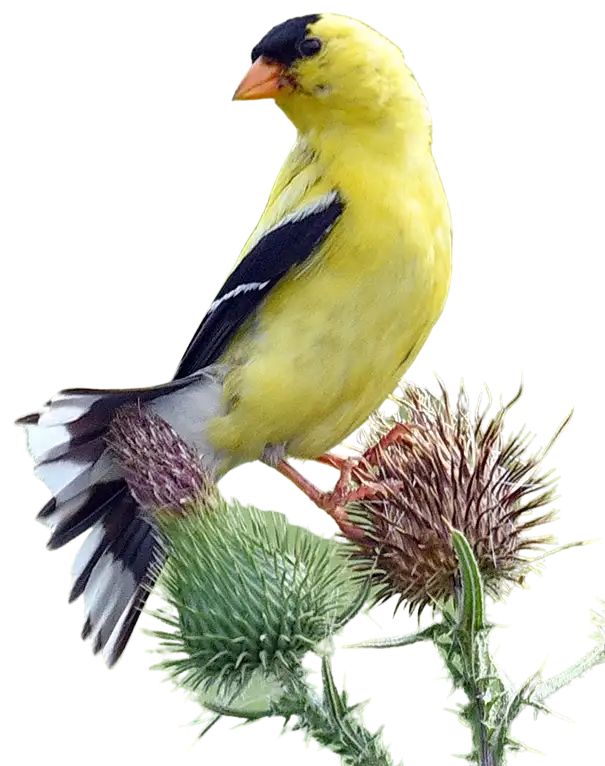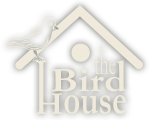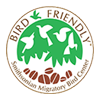The highlight of any December is participating in your local Christmas Bird Count, and there are several in our area. Rochester, Letchworth-Silver Lakes, the “Little Lakes,” Montezuma, and Oak Orchard all host counts near the end of the month. New participants can be paired with more experienced counters, and it’s a fun way to contribute to a collaborative project that is more than a century old.
On the lake, Little Gull should be here by now. Watch for the sooty black underwings as they join flocks of Bonaparte’s Gull along the lake and adjacent ponds. Glaucous and Iceland Gull may also be found in congregations of Ring-billed, Herring, and Great Black-backed Gull, sitting at the edge of the ice and feeding on the water’s surface.
The usual lake vantage points at Irondequoit Bay, Charlotte, Braddock Bay, and Hamlin Beach can be productive. The lake off Van Lare Treatment Plant near Durand Eastman Park is one of the best spots to find Little Gull; they also are found from time to time along any of the lakeshore ponds and bays where there is open water. rondequoit Bay and Braddock Bay, which usually have at least some open water, are good for winter birding. Round, Buck, Long, and Cranberry Ponds in Greece can also be good, and it is a good time of year to take an extended trip to Sodus Bay or Conesus Lake.
Bufflehead, Long-tailed Duck, scaup, Red-breasted Merganser, White-winged Scoter, and Common Goldeneye will be easy to spot on the lake, but also keep watch for such rare visitors as King Eider and Harlequin Duck. Common and Red-throated Loon and Horned Grebe can still be found. And look closely at goldeneyes; Barrow’s Goldeneye have been found here from time to time.

Great Blue Heron. © Richard Ashworth
Late Pectoral and White-rumped Sandpiper, Snipe, and Dunlin are possible on mudflats. Purple Sandpiper is possible through the end of the month on the rock jetties at Charlotte Pier and the Irondequoit Bay Outlet.
On the ponds, open water is the crucial factor. Several species of ducks will stay right through the winter if open spots remain. So will Great Blue Heron, Belted Kingfisher, and American Coot.
There are numerous Snowy Owl in the area. Charlotte and Braddock Bay are good for them, as are snow-covered fields around town and local airports.
In the fields, watch for many of the same winter visitors – Northern Shrike, Short-eared Owl, Rough-legged Hawk, Northern Harrier, Snow Bunting, and Lapland Longspur – that began arriving earlier in the fall. A trip to Nations Road south of Avon, and to the fields around Retsof salt mines west of Geneseo will be particularly productive now. Chandler Road near the Retsof salt mine is a favorite wintering spot for Short-eared Owl; Nations Road is renowned for the owls, Rough-legged Hawk and Red-headed Woodpecker.
In the woods, half the fun of winter birding is searching for lingering half-hardy species – birds that we usually expect to move south for the winter. A few will stay in the area. Check out any area with open water and food, such as berry-laden bushes and trees, or in areas of weeds and tall grasses. Gray Catbird, Northern Mockingbird, Brown Thrasher, Carolina Wren, Yellow-bellied Sapsucker, Common Yellowthroat and Yellow-rumped Warbler are just some of the possibilities. Even if it’s not a “finch winter”, at least a few Red- or White-winged Crossbill and Pine or Evening Grosbeak can be found. Keep checking flocks of Cedar Waxwing for Bohemian Waxwing. Both Durand Eastman and Mendon Ponds parks have a variety of habitat.
In the yard, as snow cover begins to accumulate, natural food supplies are harder to find. That makes your feeder all the more attractive this time of year. Do not be distraught if a Sharp-shinned or Cooper’s Hawk also shows up to prey on your favorite songbirds. Take advantage of this opportunity to watch raptors fulfilling their natural role. Save your Christmas tree, and those discarded by neighbors, and pile them up in a corner of the yard. They can provide much-needed cover and shelter.





